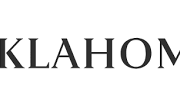This piece originally appeared in the Charleston Gazette-Mail on February 16, 2024.
The First Amendment’s guarantee of free speech is perhaps the most important right we have as Americans to improve our nation. Yet, without legal protections in place, unscrupulous plaintiffs can weaponize lawsuits to prevent speakers from exercising that right.
Unfortunately, West Virginia is one of a dwindling number of states that still have no such protections. Lawmakers now have an opportunity to change that.
West Virginia state legislators are currently considering SB 469 and its House companion, HB 4912. These bills aim to protect West Virginians from “SLAPPs,” which are “strategic lawsuits against public participation.” The goal of a SLAPP is to prevent or punish someone from speaking out on a matter of public concern, usually because the plaintiff doesn’t like what’s being said.
Plaintiffs with deep pockets can use lawsuits, normally defamation suits, to silence critics and to “chill” speech by making others think twice about speaking in the first place. Even when the defendant in a SLAPP suit prevails, the time, stress, and cost of defending the suit is itself a severe punishment that can shut down or chill free speech.
The bill currently under consideration aims to correct that problem by creating strong anti-SLAPP protections. The bill tracks the nonpartisan Uniform Law Commission’s model statute, known as the Uniform Public Expression Protection Act, or “UPEPA.” The West Virginia bill also carries the “UPEPA” name.
Current West Virginia law provides no SLAPP protection whatsoever for speakers who comment on any matter of public concern. Think about how broad that vulnerability is. You could get hit with a SLAPP suit for speaking out about taxes, gun rights, the environment, or any other political topic—but the threat doesn’t end there. You could also be subject to a SLAPP if you criticize a public official, or even if you just leave an online review. In all of those scenarios—and many more—current law offers you no protection from being victimized by a SLAPP.
If sued, you’d want to hire a lawyer, but that gets expensive. We estimate it costs between $21,000 and $55,000 to defeat a typical meritless defamation lawsuit in court. But the cost of a legal defense can easily soar into the six figures.
UPEPA would greatly mitigate that risk. UPEPA contains critical provisions that deter SLAPPs and reduce defendants’ potential litigation costs. These provisions require that plaintiffs show they have a legitimate case early in the litigation and provide defendants with a right to an immediate appeal if the court denies the anti-SLAPP motion. UPEPA-based laws also permit winning defendants to recover costs and attorney fees, as well as instructing judges to interpret the law’s speech protections broadly.
These reforms would do much to enhance free speech rights in West Virginia, which just earned an “F” grade in the Institute for Free Speech’s 2023 Anti-SLAPP Report Card, which assesses anti-SLAPP laws in all 50 states and DC. In fact, because West Virginia lacks any anti-SLAPP protection whatsoever, it not only received a failing grade, but it did so with the worst possible score: zero out of 100 points.
The Institute’s new report shows a trend toward more and stronger anti-SLAPP laws nationwide, making West Virginia’s lack of an anti-SLAPP law increasingly unusual. Today, only 17 states still have no anti-SLAPP protections whatsoever. Unfortunately, West Virginia is a member of this shrinking group.
The Institute’s report also revealed that, for the first time, over half of Americans live in states with strong anti-SLAPP protections. UPEPA has helped usher in this trend, with six states enacting new or improved laws based on UPEPA just since the 2022 edition of the Anti-SLAPP Report Card. For example, neighboring Kentucky enacted a new anti-SLAPP law in 2022 that includes essential provisions of UPEPA, now earning the state a perfect score of 100 and an “A+” grade in the Institute’s latest report.
West Virginia can soon join Kentucky and other states that have embraced the strong free speech protections contained in UPEPA. Lawmakers should capitalize on the opportunity before them to bolster free expression for all citizens by passing this essential bill.
David Keating is the President of the Institute for Free Speech and a co-author of the 2023 Anti-SLAPP Report Card.













